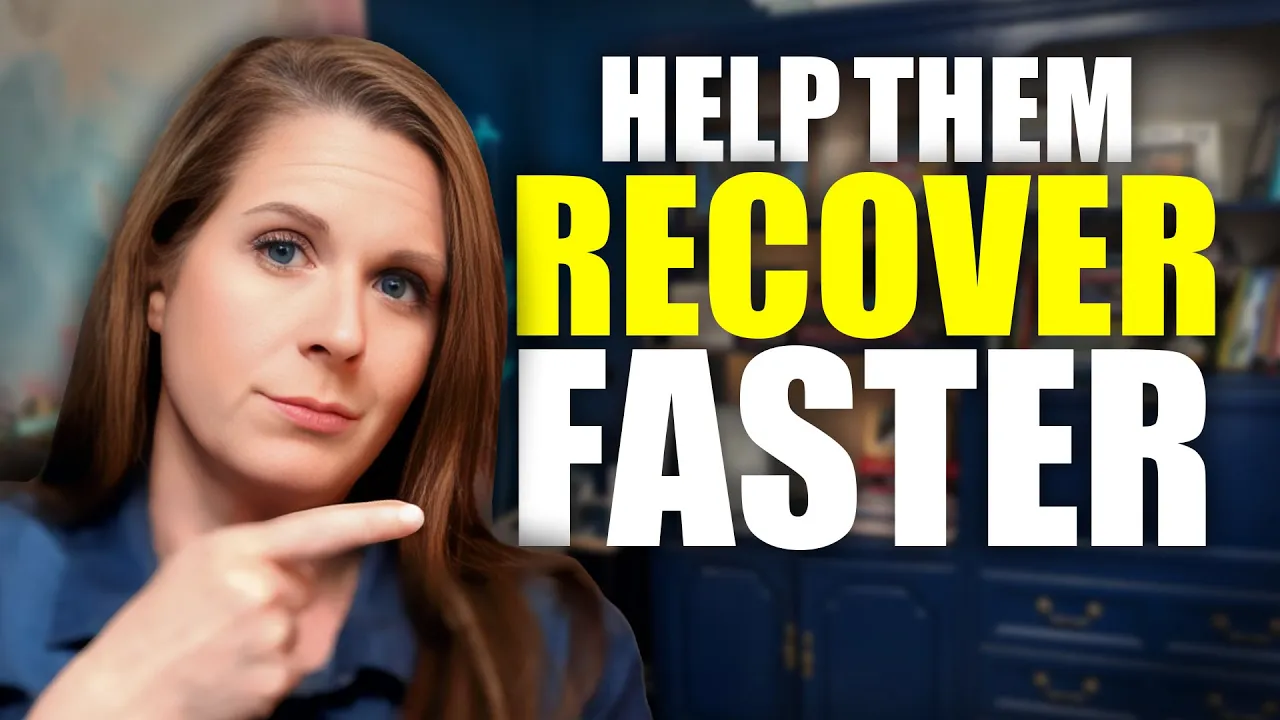The Fastest Way to Break Their Addiction (And Most People Never Use It) | Denial Crash Course Pt. 3
How to Help Someone With Addiction Get Better Faster
If you're doing everything you can to help a loved one struggling with addiction and wishing the recovery process could just go faster—you’re not alone. The good news? There is a way to accelerate the journey from addiction to recovery—and it all starts with understanding their mindset and using proven strategies to shift it.
This post breaks down actionable techniques that help family members guide their loved ones through the hardest parts of recovery. These tips come from more than 20 years of experience in addiction counseling, and they work.
Why Denial Is the First Roadblock
This blog is the third part of our crash course on denial. If you haven’t seen the first two videos, they focus on how to get your loved one to face the truth—because change starts with acknowledgment.
Once they begin to recognize that everything isn’t fine, the discomfort can create an opening for change. But if you want to take things a step further—to move the process along faster—you need to layer new techniques on top of that.
The Fastest Way to Get Someone From Addiction to Sobriety
Most people start their recovery journey for one of two reasons:
-
To avoid pain (jail, losing kids, health issues)
-
To appease someone else (spouse, parent, boss)
And guess what? That’s totally okay.
Too often, people downplay the reason someone decides to get sober. But there’s no “wrong reason” to start. The goal is to support any positive step toward change—no matter what sparked it.
Pro tip: If your loved one wants to get sober “just to keep their job” or “because their girlfriend asked them to”—validate it. Don’t minimize their why. Use it as momentum.
Shifting the Mindset From “Sacrifice” to “Freedom”
Long-term sobriety doesn’t come from fear. It comes from discovering that life is better on the recovery side. But people in active addiction can’t see that—yet.
That’s where you come in.
Start shifting their perspective:
-
Recovery isn’t about giving things up. It’s about getting your life back.
-
Sobriety brings energy, self-respect, clarity, and genuine joy.
One client shared: “Every day I stay sober feels like I get three days back in my life.”
Tap Into Their Own Experiences
Here’s a shortcut: Get your loved one to recall a time when they were sober—even if it was just a few weeks. Ask them:
-
How did you feel during that time?
-
What was different?
-
What was easier?
Why it works: These aren’t your words. They’re their own memories. That’s what makes this strategy so powerful—it cuts through denial with their own truth.
What If They’ve Never Had a Sober Season?
Then, try a short-term experiment.
Instead of pushing for forever, suggest a 30-day challenge:
-
Can they do it?
-
What changes do they notice?
And here’s the key: Be honest about what the first few weeks might feel like. Tell them:
-
It might feel worse before it gets better.
-
You might lose some friends or social habits.
-
It might feel boring at first.
Being transparent builds trust and keeps your credibility strong. And when positive changes do happen, they’ll trust you enough to share them.
Plant the Right Seeds
Let your loved one know what positive changes to watch for:
-
Feeling rested
-
Less anxiety
-
More Motivation
-
Better focus
This works because people notice what they expect to see. If they’re only watching for how boring or lame sobriety feels, that’s all they’ll experience. Help them look for the good.
Think of it like giving directions: “Look for the big purple bookstore sign.” Now they won’t miss it.
Ask the Right Questions to Reinforce the Good
Try asking:
-
“Have you noticed any changes in how you feel?”
-
“Do you feel more productive or energetic?”
-
“Is your anxiety any better?”
These reflection questions help reinforce progress—and give them more reasons to keep going.
Double the Motivation: Avoid Pain + Seek Joy
Most people enter recovery to stop the pain. But staying sober happens when they realize life is better on the other side. Once you help them connect those dots, you’ve doubled their motivation.
Avoiding pain + seeking pleasure = fast-tracked recovery.
When They Say "It Didn't Work"
They’ll often say things like:
-
“I’ve already tried getting sober—it didn’t work.”
-
“I’ve been to rehab 5 times.”
-
“I can’t stay sober.”
Here’s how to reframe it:
-
“What’s the longest you’ve stayed sober?”
-
“Three months? That means something was working.”
-
“Let’s figure out what helped you stay sober for that long.”
You’ve just taken their failure story and turned it into evidence of strength.
When They’ve Never Been Sober
If your loved one has no sober time, ask them:
-
“What’s the hardest thing you’ve ever done?”
-
“How did you get through it?”
-
“What did it teach you about yourself?”
Remind them of their courage—and that they’ve done hard things before. Recovery is just another hard thing they’re capable of doing.
Look for “Change Talk” Moments
One of the most important times to speed up recovery is when you hear change talk. These are the golden windows where they hint at:
-
Wanting things to be different
-
Feeling tired of the addiction cycle
-
Talking about past attempts to quit
When this happens, don’t miss the moment. Lean in. Reinforce it. Pour gasoline on that spark.
Need help spotting change talk? Download our free guide with examples and responses.
Final Thoughts: You Can Help Speed Up Recovery
You don’t need to control everything. But with the right approach, you can create an environment that accelerates change.
✅ Validate any motivation for sobriety
✅ Help them remember their own strength
✅ Guide them to notice the benefits
✅ Reinforce truth, not shame
These are the conversations that shift someone’s mindset—from “I have to get sober” to “I want to stay sober.”
Want More Support?
Check out the full video that inspired this post, and grab your free Change Talk Guide here.
Subscribe to the Put The Shovel Down YouTube channel for weekly insights on family recovery, addiction psychology, and communication strategies that work.
Amber Hollingsworth
The PSYCHOLOGY Behind Breaking An Addict's DENIAL | Denial Decoded Pt. 2
ADDITIONAL RESOURCES:
🆓FREE Downloadable Resources: https://www.familyrecoveryacademy.online/free-resources
🙋🏻♀️FB group for family members: https://www.facebook.com/groups/familyrecoverysupport
📆Make An Appointment With One Of Our Specialists: https://www.familyrecoveryacademy.online/consultations
Get 10% off Virtual Counseling with our sponsor BetterHelp 👇🏻 https://betterhelp.com/PutTheShovelDown
💯Incredibly accurate personality tests that light up your life—at home, at work, and in relationships 👉🏻 https://www.truity.com/?a=5122460
📚Amazon Book Recommendations: https://www.amazon.com/shop/addictionrecoveryresources-hopeforfamilies


